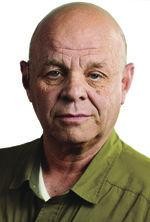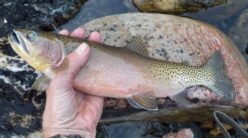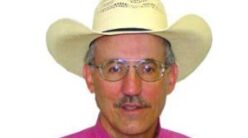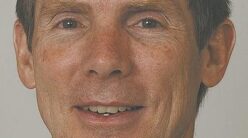I have always felt fortunate to have grown up in the Rocky Mountain North West. I was taught to hunt at an early age by my father, whom I would describe as a reluctant hunter, and two of his brothers, who were enthusiastic hunters and could hardly wait for hunting season each year.
Grandpa Merkley raised his sons to be skilled and ethical hunters, and they in turn handed down his example and lessons to his sons who in turn handed down the same example and lessons to my generation on many hunting trips and camp fire chats all over the state of Idaho.
My generation has now, for the most part, handed down the same example and lessons to their own children who now seem to think that plenty of cookies, soda pop and an iPod, are all they need in their day packs.
Jim Posewitz’s book “Beyond Fair Chase” defines an ethical hunter as “a person who knows and respects the animals hunted, follows the law and behaves in a way that will satisfy what society expects of him or her as a hunter.”
I believe that a responsible hunter will always use a weapon that is powerful enough to cleanly kill the animal being hunted without being so powerful that the hunter can’t shoot accurately because of anticipation of a stout recoil. I often hunt deer or elk with a .300 Weatherby Magnum because I am not sure at what range I will have to shoot and the .300 Weatherby is capable of reaching out with sufficient energy to cleanly kill deer or elk at several hundred yards. I do, however, normally limit myself to 600 yards based on my eyesight, skill with my rifle and the caliber’s ability to strike the target at that distance with enough energy to make a clean kill. I have been using a .300 Weatherby for a lot of years and am completely comfortable shooting it without worrying about the recoil and can do so without flinching at the shot. Many of the people I have hunted with over the years prefer .30-06s, 7mm Magnums and .300 Winchester Magnums for most of the same reasons. I even opt for a .30-06 if the area isn’t going to be very open in most places.
Along with using a rifle with sufficient power, I believe an ethical hunter will try to get within a reasonable range of the animal being hunted to make sure the shot is well paced. Taking shots at ranges outside of a hunter’s ability to consistently hit the vital zone usually means a missed or, even worse, badly placed shot that doesn’t kill the animal but cripples it. When you pull the trigger or release an arrow, you should be almost certain that you will hit and kill the animal. None of us are perfect and we all make poor shots at times, but getting as close as possible decreases the chance of a badly placed shot.
Respect for property owners and their wishes is one of the most important traits of an ethical hunter. Don’t trespass on private property, Get permission to hunt on or cross private property. If the property owner says no, don’t argue; find somewhere else to hunt. Another aspect of respecting others is remembering that not everyone wants to see a dead deer, so don’t put it on display for everyone to see as you drive home or to the processor’s place of business.
Practice principles of fair chase where the deer or elk has an advantage, but you just might get the opportunity if you are quiet and smart to get your shot. I also don’t believe canned hunts on fenced properties are ethical. If a particular elk farm guarantees you will get your deer or elk, that isn’t fair chase. If you think differently, then we disagree.
An ethical hunter uses all or as much of the animal as possible. If you hunt just for the experience to get out and try to outsmart a buck that has survived for several years, but you don’t want the meat, donate it to Idaho Hunter’s Feeding the Hungry. They have a website that will tell you how to donate the meat.
I believe that most hunters have developed their own ideas about ethical hunting and have a sense of right and wrong, but sometimes the temptation to do something that is not in keeping with ethical practices is pretty strong. We just have to be stronger because the future of hunting depends on the ethical behavior and good examples we as hunters set and exercise.
Smokey Merkley was raised in Idaho and has been hunting since he was 10 years old. He can be contacted at mokeydo41245@hotmail.com.



